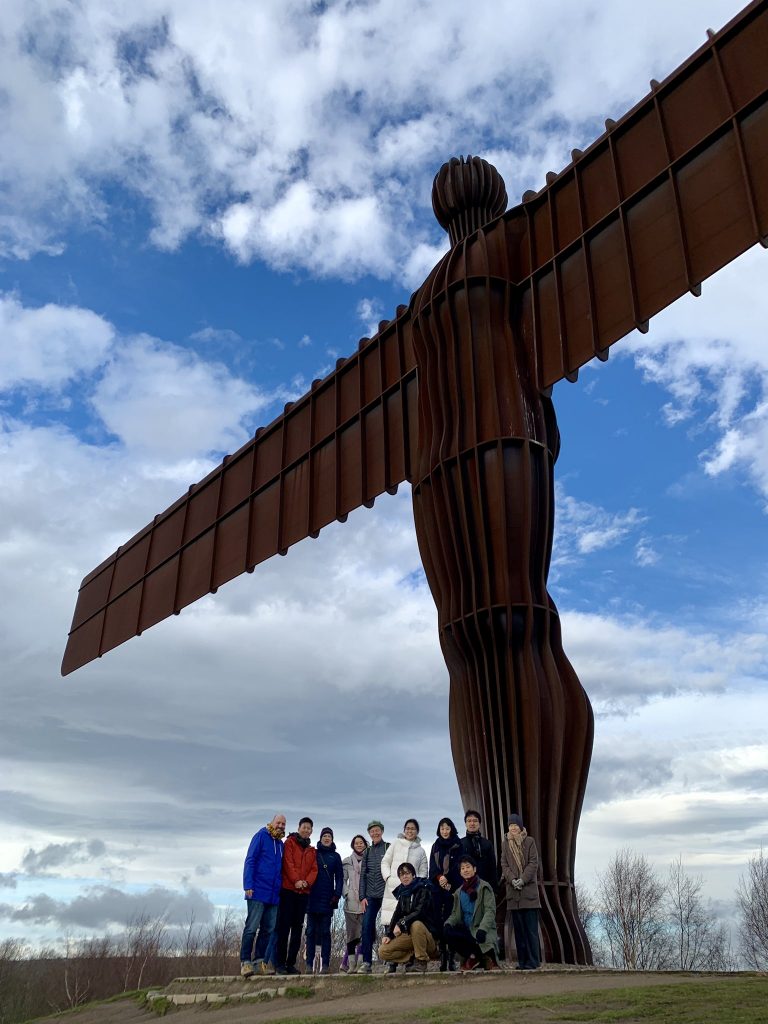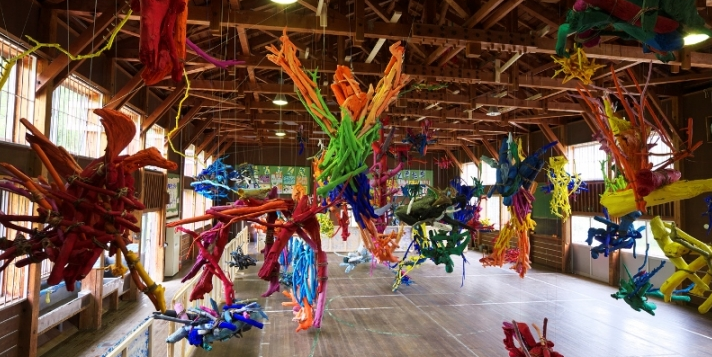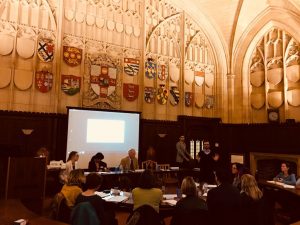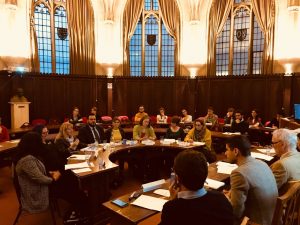Frances Rowe writes about an exciting new cultural collaboration between Newcastle University and the University of Tokyo.

Project colleagues
A unique experiment in cultural collaboration and exchange began last week with the launch event of the Contemporary Arts in Rural Development project. Conceived and led by Dr Menelaos Gkartzios of the Centre for Rural Economy, along with Dean of Culture and the Creative Arts Prof Vee Pollock, both at Newcastle University, and Associate Professors Hironori Yagi and Nanami Toishi of the University of Tokyo. Financial support comes from the University’s Institute for Creative Arts Practice, and the project is backed by both the Economic and Social, and Arts and Humanities Research Councils in the UK. The project brings together academics and arts practitioners to explore the intersection between the arts and rural development in both countries. The aim is to enable each to learn from the other with exciting possibilities for cross-fertilization of ideas and potential projects.
Eager to share perspectives and experience, participants from across different disciplines and practices entered into the spirit of working across boundaries from the outset. The first two days encompassed a broad canvas of discovery and knowledge that was consolidated on the last day through a field trip to Berwick upon Tweed in rural Northumberland, hosted by James Lowther of Berwick Visual Arts and partner organisation in CRE’s artist in residency programme.
Interdisciplinarity may be in vogue but making it work is a different matter. Often working across disciplines throws up challenges of conflicting knowledges and ways of knowing, and cries out for a common language or at least the need for translation. For me the lightbulb moment happened when Dr Julie Crawshaw talked about practices. The rich array of presentations and conversations took us on a journey from the human: nature relations of contemporary philosophical practice, and the place of farming and landscape in the cultural imaginaries of both Japan and the UK (although these are different), to contemporary arts practices in the countryside as a broad response to landscape and place, to rural development as a set of practices working with and beyond art: taking the aesthetic responses of artists and turning them into opportunities for rural regeneration.

Museum of Picture Book Art. Credit: http://www.echigo-tsumari.jp/eng/
The case of the Echigo-Tsumari Art Triennale in the south east of Japan illustrates the journey of practice. This arts festival – think an equivalent to the Venice Biennale – is held every three years and is the largest arts festival in Japan and the largest oudoor art festival in the world. Started by a cultural entrepreneur motivated by an ethos of sustainability, it attracts international artists of standing to respond to the issues of the Niigata Prefecture. The issues are familiar: an ageing population farms the land while young people have deserted the countryside for better opportunities and the buzz of the city, leaving rural communities struggling to remain viable in the face of limited services and a dwindling workforce. The result is seen in abandoned farms and farmsteads, closed schools, derelict municipal buildings and disappearing services. Many of these changes are structural and global, so how can contemporary art make any inroad into such intractable forces? We learned the answer lies partly in local capacity to take the cultural value produced by the Triennale and convert it into something more lasting. To do so requires a translator in the system, in this case the NPO (non-profit organisation) Echigo-Tsumari Satoyama Collaborative Organisation. We heard from Tadahiro Asai first-hand how this happens on the ground. The artworks commissioned from the artists invited to participate in the Triennale are usually temporary. However, some pieces have been retained in the local community and have become visitor attractions in their own right, such as the extraordinarily vibrant Museum of the Picture Book that attracts visitors from all over Japan. Not only does the NPO maintain the permanent artworks as a visitor attraction, but it works with the artists to engage local communities in the making of the art for the festival, and in the years in between, building their capacity to engage with visitors, who reflect back to the community some of the history and tradition it has lost. The result is a regaining of community pride partly through recognition from outside of the value of their lives and landscapes, but also the practical embodiment of doing that helps give communities the tools for regeneration. The result is that a pervasive sense of hopelessness is being replaced by a feeling that ‘something else is possible’ – as discussed also by Dr Menelaos Gkartzios in the case of another art festival in remote rural Japan, the Oku-Noto Triennale.
Thinking in this way about practices provides a sort of conceptual Esperanto for interdisciplinarity, and I was struck by how different actors acted as translators at each juncture in the journey of practices. And because of the gathering of different kinds of expertise, with participants committed to sharing and interacting with one another, we were doing interdisciplinary without it seeming a burden.
I could go on at length about the richness of the week’s interactions. Suffice to say that through collaboration, our developing partnership believes that something else is possible. I should personally like to thank the Japanese visitors, and all who came to the three days of this extended seminar, including artists, curators, academics and other practitioners, for generously sharing their perspectives and expertise, for being such engaging company and demonstrating a spirit of openness and willingness to share that makes the future of this project potentially powerful and exciting. I simply can’t wait for the next instalment when we return to Japan in May!



